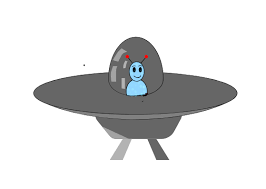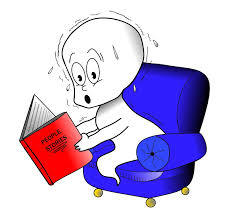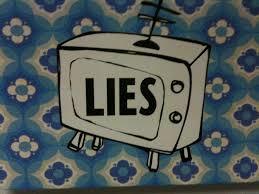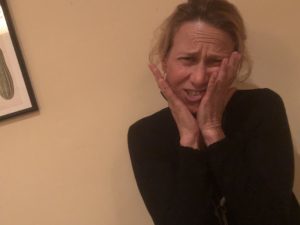Tracy Shawn's Blog, page 4
February 13, 2019
How to Follow–and Live by–Your Own Meaning
By Tracy Shawn, MA : First Published under title “A Life Worth Living: How to Find and Follow Your Meaning” on PsychCentral on 6 Feb 2019 ~ 2 MIN READ
If you’d like to know how to decrease depression, alleviate anxiety, and live an all-around better life, there is a simple answer.
The good news, too, is that it doesn’t entail any kind of medication, money, or treatment modalities. Simply put, it’s about making decisions based on what’s truly meaningful; essentially what makes both your inner world and the outer world a better place.
Similar to discovering your mission and following your passion, consciously pursuing your own personal meaning can enrich your life in ways you hadn’t thought possible. It doesn’t matter who you are, where you come from, or what you do for a living, seeking your meaning often heals both yourself and others.
A poignant example of creating your own meaning is how Candy Lightner reacted to the senseless loss of her thirteen-year-old daughter, Cari. While walking to a carnival with her friend, Cari was struck by a car, knocked out of her shoes, and thrown 125 feet. Cari died soon after the accident.
Ms. Lightner was informed that the driver, who was intoxicated, had been arrested a short time earlier for another drunk driving offense. However, officers told Lightner that this driver would most likely receive no lasting punishment for essentially murdering her daughter.
Soon after, Lightner channeled her anger and sorrow into something that could give her life meaning; she quit her job and used her savings to launch M.A.D.D. (Mothers Against Drunk Driving). A determined, and tireless fighter, Lightner lectured and lobbied across the country, helping to pass anti-drunk driving legislation — that to this day, continues to save lives.
Of course, Lightner’s work will never bring her beloved daughter back. But like so many other people who decide to create a pathway of meaning and hope — no matter how senseless and devastating their loss — there’s a larger capacity to continue on with an increased sense of purpose and… an empowered sense of self that can never be shaken.
Your path to meaning may not be born of such devastation as Lightener’s, yet we all endure disappointments, setbacks, and grief. Finding and practicing your meaning often stems from personal history, values, and the desire to become an all-around better person.
Take a look around. There are everyday heroes that heed their own personal meaning on daily basis: the dad who decides to become a thousand-fold-more thoughtful and loving parent than his own cold, critical father had been; the teacher who continues to motivate even her toughest of students because she had grown up with a learning disability; the cashier at your local supermarket who exudes warmth and friendship to all in reaction to the loneliness that had devastated her developmentally disabled aunt.
Basing our choices on what truly matters reminds us that we are able to tap into our capacity to help both ourselves and others, even if fleeting emotions such as happiness wanes, our physical health declines, or our material wealth plummets. This, in turn, helps to decrease overall depression, anxiety, and feelings of worthlessness.
It’s a practice that can be consciously followed in both big and small ways, with both lifelong goals and everyday choices in mind.
Like Lightner, some people may take the most devastating event in their lives and decide to either work in a professional realm or volunteer their time in order to make a positive change. Other people may incorporate their own values within the job or role (such as parent, friend, or mentor) they already have in order to make the world a better place. Still others may decide to share their own physical, emotional, or mental health issues in a public forum in order to educate — and help others know that they’re not alone.
We all have the ability to bring meaning into our everyday lives by following through on such simple actions as: checking in on an elderly neighbor, weekly visits with a grieving friend, or simply showing compassion to both friends and strangers.
It all adds up, no matter where we live, who we are, what we do. Finding and following our meaning can help us all lead a life worth living.
Author and speaker Tracy Shawn lives and writes on the Central Coast of California. Her debut novel, “The Grace of Crows” (Cherokee McGhee, 2013),won awards for indie fiction, including the 2013 Jack Eadon Award for Best Book in Contemporary Drama and Second Place for General Fiction from Reader Views. Tracy’s short stories have appeared in Literary Brushstrokes, Psychology Tomorrow Magazine, and most recently, Steel House Review. She’s written numerous articles for print and online publications and is a frequent contributor to psychcentral.com. She has currently finished her second novel.
November 6, 2018
Humans are a Weird Species
By
Tracy Shawn, M.A.
 If aliens happened to land their spaceship in front of my house and then traipsed their lithe gray bodies out to get a glimpse of where the hell they were—and who the hell—we are, I’d have a hard time explaining all our idiosyncrasies like hypocrisy, dishonesty, and the overwhelming strangeness of our self-destructive nature.
If aliens happened to land their spaceship in front of my house and then traipsed their lithe gray bodies out to get a glimpse of where the hell they were—and who the hell—we are, I’d have a hard time explaining all our idiosyncrasies like hypocrisy, dishonesty, and the overwhelming strangeness of our self-destructive nature.
Let’s face it: Humans are a very weird species. For one, take our fear of public speaking. A great many humans are more afraid to speak in front of an audience than the ultimate “good-by,” “see-you-never,” “adios-earth,” final demise. Why? Are we so afraid of the slight possibility of public humiliation that we’d rather die than speak? Come on, humans let’s admit that’s really peculiar!
 And then let’s take a look at how we’re deadly afraid of death itself (understandably so, of course)—yet we still indulge in so many self-destructive behaviors that we often bring it on ourselves. Even though we know it’s bad for our health, we overeat, over drink, overdose on drugs and many Earthlings inhale the multitude of poisons in cigarettes, in what they jokingly refer to as “another nail in my coffin.” Not only that, we “forget” to put on our seat belts, drive too fast, and take other stupid physical risks that shorten our lifespans—as well as others. We don’t want to leave our loved ones, we don’t hurt others (well, most of us don’t, at least), and yet so many of us engage in self-destructive acts. Ah, what an odd concoction we humans are!
And then let’s take a look at how we’re deadly afraid of death itself (understandably so, of course)—yet we still indulge in so many self-destructive behaviors that we often bring it on ourselves. Even though we know it’s bad for our health, we overeat, over drink, overdose on drugs and many Earthlings inhale the multitude of poisons in cigarettes, in what they jokingly refer to as “another nail in my coffin.” Not only that, we “forget” to put on our seat belts, drive too fast, and take other stupid physical risks that shorten our lifespans—as well as others. We don’t want to leave our loved ones, we don’t hurt others (well, most of us don’t, at least), and yet so many of us engage in self-destructive acts. Ah, what an odd concoction we humans are!
 We are also the only species on our planet who lie (well, at least that we know of: I have a feeling that if we could decipher what our domestic felines are mewing about, we’d find out that they enjoy fibbing just for the fun of it). But I digress. How did we figure out how to lie in the first place? And more importantly, why do we do it? There’re as many reasons as there are lies. But mostly, we lie to get away with—or out of things. You know what I’m talking about: The husband who lies about how often he’s going to hot yoga (hint: it’s really about the curves ahead than his own body alignment); the teenager who lies about the real reason her grades have plummeted (hint: it’s really about getting high with her stoner boyfriend than it is about how unfair her teachers are); the friend who lies about why she didn’t show up at your birthday party (hint: it’s really about the fear of running into her ex-boyfriend than it was about her supposed migraine).
We are also the only species on our planet who lie (well, at least that we know of: I have a feeling that if we could decipher what our domestic felines are mewing about, we’d find out that they enjoy fibbing just for the fun of it). But I digress. How did we figure out how to lie in the first place? And more importantly, why do we do it? There’re as many reasons as there are lies. But mostly, we lie to get away with—or out of things. You know what I’m talking about: The husband who lies about how often he’s going to hot yoga (hint: it’s really about the curves ahead than his own body alignment); the teenager who lies about the real reason her grades have plummeted (hint: it’s really about getting high with her stoner boyfriend than it is about how unfair her teachers are); the friend who lies about why she didn’t show up at your birthday party (hint: it’s really about the fear of running into her ex-boyfriend than it was about her supposed migraine).
 The odd thing about our species’ continuous lying habit is that humanoids often feel a sense of guilt—and with time, invariably get caught, anyway. And then the people they have lied to invariably have a hard time trusting them. Yet, the lies keep coming. So much so, than many people start to believe in their own “mistruths” and will adamantly defend them, even at the cost of a healthy relationship—or no relationship at all. In fact lying is so ingrained in our species that our politicians—the very people we elect to keep order and a sense of fairness in our society—bury us every day under barge-sized shovelfuls of bull. And…speaking of society, our very culture continually lies to us as well. We’re bombarded by ads that tell us we aren’t pretty, handsome, cool, successful enough and that if we only used their companies’ shampoos, guzzled down their beers, and even chomped on their greasy potato chips, we’d be that much better off.
The odd thing about our species’ continuous lying habit is that humanoids often feel a sense of guilt—and with time, invariably get caught, anyway. And then the people they have lied to invariably have a hard time trusting them. Yet, the lies keep coming. So much so, than many people start to believe in their own “mistruths” and will adamantly defend them, even at the cost of a healthy relationship—or no relationship at all. In fact lying is so ingrained in our species that our politicians—the very people we elect to keep order and a sense of fairness in our society—bury us every day under barge-sized shovelfuls of bull. And…speaking of society, our very culture continually lies to us as well. We’re bombarded by ads that tell us we aren’t pretty, handsome, cool, successful enough and that if we only used their companies’ shampoos, guzzled down their beers, and even chomped on their greasy potato chips, we’d be that much better off.
 This kind of lying leads to another weird trait that inflicts our species: greed. Yet another negative idiosyncrasy, greed often leads to a general sense of unhappiness and ultimate emptiness. And…yet again, the very people we elect, the most “successful” business executives, and even a great many individuals who are struggling to get ahead are often driven by greed and the false belief that the more money and material goods they accrue means the more happiness and sense of well-being they’ll feel. Yet study after study says that the somewhat rich—and even the outrageously wealthy—aren’t any happier than the rest of us. But just like the lying habit, gigantic swarms of humans are still making huge life decisions based on greed. Not to mention how the all-mighty dollar blinds so many individuals, governments, and businesses about the environmental cost to our only home called Earth.
This kind of lying leads to another weird trait that inflicts our species: greed. Yet another negative idiosyncrasy, greed often leads to a general sense of unhappiness and ultimate emptiness. And…yet again, the very people we elect, the most “successful” business executives, and even a great many individuals who are struggling to get ahead are often driven by greed and the false belief that the more money and material goods they accrue means the more happiness and sense of well-being they’ll feel. Yet study after study says that the somewhat rich—and even the outrageously wealthy—aren’t any happier than the rest of us. But just like the lying habit, gigantic swarms of humans are still making huge life decisions based on greed. Not to mention how the all-mighty dollar blinds so many individuals, governments, and businesses about the environmental cost to our only home called Earth.
 Yes, we really are an odd, unstable species who are often ruled by fear—even if it’s irrational, enjoy sneaking around the truth—even if it hurts, and is driven by greed—even it disappoints. Yet…we are also benevolent, loving, and hopeful. Maybe what I’d say, then, to those hypothetical aliens is this: “You want to know what humans are like? Watch Star Trek; we’re a mixture of the war-mongering Romulans (who act upon raw emotion), the calm, clear-headed Vulcans (who act upon reason and logic), and…a contradictory species that you may call Neurotic.
Yes, we really are an odd, unstable species who are often ruled by fear—even if it’s irrational, enjoy sneaking around the truth—even if it hurts, and is driven by greed—even it disappoints. Yet…we are also benevolent, loving, and hopeful. Maybe what I’d say, then, to those hypothetical aliens is this: “You want to know what humans are like? Watch Star Trek; we’re a mixture of the war-mongering Romulans (who act upon raw emotion), the calm, clear-headed Vulcans (who act upon reason and logic), and…a contradictory species that you may call Neurotic.
Author and speaker Tracy Shawn lives and writes on the Central Coast of California. Her debut novel, The Grace of Crows (Cherokee McGhee, 2013), won awards for indie fiction, including the 2013 Jack Eadon Award for Best Book in Contemporary Drama and Second Place for General Fiction from Reader Views. Tracy’s short stories have appeared in Literary Brushstrokes and Psychology Tomorrow Magazine. She’s written numerous articles for print and online publications and is a frequent contributor to psychcentral.com. She has currently finished her second novel.
July 10, 2018
Dealing with Summer Depression, Otherwise Known as: Summertime Seasonal Affective Disorder
By Tracy Shawn, MA
~ 3 min read

Sunset Over Horizon
Photo by Tracy Shawn
As I write this, sunlight glares off the pavement outside my window, the sky remains a plain of ceaseless blue, and the air is so bogged down with heat that the usual cheery birdcalls trilling through the neighborhood now sound shrill.
It is summer; I am sad and annoyed — and there’s not a big overreaching reason why (not any more than all the other seasons, at least). I haven’t always been a “bummer in the summer” kind of person; in fact, it used to be my favorite time of year. All the way through childhood and even past my college years, I relished long days swimming in the ocean and countless nights sitting around bonfires with friends. When I became a parent, I still loved the summer season, planning seaside vacations with my family and reading to my kids under the canopy of the city park’s huge oak trees.
But as my children turned into adults and I transformed into a middle-aged woman, I find that the long, light-filled days have grown increasingly challenging. One of my friends feels similarly, joking that maybe it’s because our skin has literally become thinner, making us more sensitive to sunlight and prone to sunburn. Although that may be true, our more delicate epidermis doesn’t account for the ever-thickening sadness. And… I also know a 26-year-old who also notices that she gets the summertime blues as well.
So out of curiosity, I Googled “Seasonal Affective Disorder in the Summer,” not expecting any concrete results. I was surprised to find that it really is a “thing.” Even WebMD had an article on it titled “Tips for Summer Depression,” saying that about 10 percent of people with SAD get it in “the reverse” — that is instead of depression being triggered during the typical SAD season of winter, it creeps in during summer months instead.
Symptoms of summertime SAD include loss of appetite, trouble sleeping, weight loss, insomnia, and anxiety — and, of course, sadness. According to this article, the director of the Depression Research Program at UCLA, Ian A. Cook, MD, says that some studies have shown that SAD is more common during the summer than winter in countries near the equator. Experts theorize that longer days and increasing heat plus humidity may play a role.
So what can we “summer-bummer” folks do to help save ourselves from drowning in the summertime blues? Whether we are suffering from a clinical bout of summertime SAD or dealing with situational depression during these hot, sweaty months, below are a number of ways that can help us cruise through the dog days of summer.
Dealing With the Extra Light. Staff writer Olga Khazan at The Atlantic wrote a piece about summertime SAD in which she cited a theory by Alfred Lewy, a professor of psychiatry at Oregon Health and Science University. Lewy theorizes that the intense light of summer may be just as disruptive as winter’s short days and long nights. Because people have a tendency, as well, to stay up later in the summer, we can further throw off our body clocks. Lewy suggests that people suffering from summertime SAD may be able to reset their clocks by taking melatonin and exposing themselves to early-morning light.
Dealing With the Extra Heat. The simple fact that heat can also affect people in negative ways (irritability, anger, lethargy, etc.) can very well contribute to summertime SAD. According to the article posted in The Atlantic, Thomas Wehr, a scientist emeritus with the National Institute of Mental Health who first documented SAD, notes that when people with summertime depression were “wrapped in cooling blankets at night, their temperatures dropped and their symptoms disappeared. As soon as they went outside into the summer heat, their depression returned.”
Dealing With the Extra “Fun.” Aside from the biological reasons behind summertime SAD, people often have to deal with extra stressors of the season, including body image issues (the thought of donning shorts and bathing suits can make some people feel horribly self-conscious), disrupted routines (kids home from school and/or college, anyone?), even vacations can contribute to summer depression because they disrupt exercise, sleep, and eating habits. It’s important, therefore, to either find a way to work on body image issues and/or allow yourself the freedom to wear a nice, cool dress or loose pants and shirts, instead of shorts and tank tops and swimming trunks and t-shirts (rather than bikinis), plan summer camp activities for the kids and/or make sure that your college-aged kids know you’re not going to work as their personal maid, and lastly, try to maintain a healthy exercise routine (maybe an air-conditioned gym may be in order?), a steady sleep schedule, and try to eat as healthy of a diet as possible.
And… you can also do what I do: By seven at night, I often shut all the blinds, curl up on the couch, and enjoy a good book or my current binge-worthy show, while ignoring the evening sun outside my front door as well as my neighbor’s beer-enhanced barbecues. Ah, how wonderful the mellow light of autumn will be!

Tracy Shawn, MA
Author and speaker Tracy Shawn lives and writes on the Central Coast of California. Her debut novel, The Grace of Crows (Cherokee McGhee, 2013), won awards for Indie fiction, including the 2013 Jack Eadon Award for Best Book in Contemporary Drama and Second Place for General Fiction from Reader Views. She’s written numerous articles for print and online publications. Ms. Shawn has currently finished her second novel and is now working on her third. You can visit her website at: www.tracyshawn.com.
May 29, 2018
An Anxiety-Warrior’s Guide to Anti-Stress & Anxiety Supplements
By
Tracy Shawn, M.A.

As a long-term anxiety-warrior, I tried many different modalities to help combat my terrible “what-if” monsters. I started out trying cures without any scary side effects (that I could find, anyway), such as homeopathic remedies and flower essences, and when they didn’t work, I tried herbal tinctures—and when they didn’t work, I tried a series of prescribed anti-anxiety meds. Unfortunately, even those pharmaceutical weapons could not overtake the ever-evolving army of irrational fear that marched through my brain.
Luckily, though, I discovered that reading self-help books and the cathartic act of writing could help me win my mental war over irrational fear better than anything else I had ingested. Still, I had to accept that no matter how much I read or wrote, I am naturally prone to anxiety and that some days (or weeks, or months, even) I can get triggered and find myself back in the mucky trenches of dread. With time, I learned to incorporate a way to fortify my physical body, as well, in order to strengthen my armor of calm and, therefore, decrease my stress and anxiety.
Of course, what has worked for me may or may not work for you. We are all distinct, and our bodies react differently due to a vast number of reasons, including genetics, gender, age, physical health, etc. So, please don’t look to my experience alone on any one of the effective ways to deal with your own anxiety and stress. (If, for example, anti-anxiety meds are something you and your doctor feel will help you, they very well may be a solid solution). In fact, I also believe that what has or hasn’t worked in the past for an individual may very well change with time. That being said, below is a short list of supplements that have helped me. I’m passing it on to you, fellow anxiety-warriors, just in case one—or all—may help you fight your own battle.
MAGNESIUM
According to my trusty guide, “Prescription for Nutritional Healing,” supplementing one’s diet with the mineral magnesium can help prevent a number of ailments, including depression, irritability, and nervousness. Food sources include dairy products, fish, meat, seafood, apples, avocados, bananas, black-eyed peas, nuts, and figs. Personally, I take two Magnesium Citrate tablets (from Now Foods) before going to bed. I have found that it helps both my brain and muscles relax, which not only decreases my stress levels, but also leads to a better night sleep.
In the article “8 Ways Magnesium Relieves Anxiety and Stress” written by Deane Alban for the website bebrainfit.com, talks about how magnesium binds to and stimulates GABA, which helps “put the brakes on brain activity.” According to this article, low GABA is associated with numerous stress-related disorders, including anxiety. Therefore, magnesium may help counteract such symptoms as worry, racing thoughts, etc. connected to low GABA levels. To learn more, here is the link https://bebrainfit.com/magnesium-anxiety-stress/ to the full piece, which includes other reasons why magnesium can help reduce stress and anxiety, as well as recommended forms of magnesium and their typical uses.
For further information, including possible side effects and recommended dosages, please read this article by Kelli Cooper from LiveStrong.com: https://www.livestrong.com/article/486457-the-dosage-of-magnesium-for-anxiety/ (According to this piece, people with heart and kidney diseases should consult their physician before taking magnesium, and pregnant woman should not exceed 350 mg dosage per day). As with any dietary supplement, always check with your health practitioner before taking.
GREEN AND HERBAL TEAS

There are many teas available that can quiet the chattering of an over-worked brain. In fact, even though green tea contains caffeine, it can calm people down due to its L-theanine content. Since it is caffeinated, though, it’s best to drink it before 2:00 in the afternoon if you suffer from insomnia.
In an article in the Huffington Post by Toby Nwazor, there is a list of other calming teas that do not contain caffeine, and, therefore, can be helpful for sleep. The first suggested tea is peppermint, which contains the natural muscle relaxant menthol. Menthol helps reduce tension and irritability, and can help induce a more peaceful sleep (but pregnant woman should not take it, as it increases the risk of miscarriage). Chamomile tea’s properties also help to decrease muscle tension and can help combat insomnia. Lemon balm reduces the stress hormone cortisol and relaxes the body without causing drowsiness. A great tea for daytime, lemon balm can also elevate mood. Passionflower tea contains the flavonoid, flavone chrysin, which has anti-anxiety benefits (avoid if taking other sedatives and not for children under six months and pregnant or lactating women). And last but not least, rose tea helps ease the mind due to its aromatic effect.
I drink of all the above teas at different times, and also enjoy Celestial Seasonings “Tension Tamer,” which combines a number of herbs and B vitamins to help ease stress. I also appreciate the cover art of the serene lady in a long red dress calmly sitting on the back of a reclined dragon. And, let’s face it; even the act of drinking a nice, warm cup of tea—no matter what’s in it—can have a calming effect in and of itself!
CBD OIL
Full disclosure here: I recently added CBD oil to my anti-anxiety arsenal after a representative with VerifiedCBDOil.com contacted me through my website, offering me a free sample of their anti-anxiety and anti-stress spray for a possible write-up because my debut novel, “The Grace of Crows,” is about a woman overcoming anxiety and I’ve written many nonfiction pieces about how to combat anxiety and stress. I explained that I would only mention it if I thought it worked for me. Happily, it did—and it arrived at a perfect time; right before a road trip with my husband, whose driving can cause my heart to jump into my throat at times.
But I digress; for those of you who don’t know what CBD is, it’s a natural component of the hemp plant and is not psychoactive. In other words, it won’t get you high (unlike THC, which is also found in hemp, but is psychoactive). I was willing to try CBD because I heard that the side effects weren’t that severe (such as dry mouth, slight light-headedness, and a small drop in blood pressure) and that a number of people swore that it did, indeed, decrease their anxiety. To read more about CBD’s possible side effects, here’s a link that helps clarify: https://www.webmd.com/vitamins/ai/ingredientmono-1439/cannabidiol
I also read an article titled “Anxiety Relief Without The High? New Studies on CBD, A Cannabis Extract” on NPR’s website by Allison Aubrey that mentioned how CBD exhibits anti-anxiety properties and that one study showed how participants who took CBD reported significantly less anxiety than those who took a placebo before giving a speech to a large audience. So, I happily sprayed away (VerifiedCBD Anti-Anxiety & Anti-Stress Spray also includes a propriety blend of GABA and valerian root) when we got stuck in traffic and when, well…just when I needed to. It does seem to take my stress down several notches and I have not felt any side effects. It’s also very handy, the size of a lipstick, and stays in my purse, ever ready for as needed spritzes!
Author and speaker Tracy Shawn lives and writes on the Central Coast of California. Her debut novel, The Grace of Crows (Cherokee McGhee, 2013), won awards for Indie fiction, including the 2013 Jack Eadon Award for Best Book in Contemporary Drama and Second Place for General Fiction from Reader Views. She’s written numerous articles for print and online publications and is a frequent contributor to psychcentral.com. She has currently finished her second novel and is now working on her third.
Medical Disclaimer: The information contained in this blog is not a substitute for medical advice, treatment, or diagnosis. Never disregard professional medical treatment or delay seeking medical treatment because of something you have read on this site. The information on this site is for informational/entertainment purposes only. The author is neither a doctor nor a licensed therapist. Under no circumstances shall the author, guests, or contributors to this site be responsible nor liable for any information or products you may obtain from this website.
April 29, 2018
Insights and Answers into the Loneliness Epidemic

By Tracy Shawn, MA
Please note that this piece was first published with PsychCentral.com under the title: “Insights Into Loneliness”
~ 2 min read
Experts are warning us that we are in midst of a loneliness epidemic. In fact, the U.K. has recently appointed a minister of loneliness to deal with what Prime Minister Theresa May says is a “sad reality of modern life.” Our mobile society (with people increasingly moving away from family and friends), our technologically wired culture (where people are engaging less with their real-life environment and other people in it), and the growing pressure to work more (so, in part, that people can consume more), create a kind of existential stew that contributes not only to loneliness, but also to a general loss of connectedness.
Loneliness is invading more and more people’s lives, increasing stress, depression, even affecting physical health (it’s associated with greater risk of cardiovascular disease, and research shows that it is as bad for people’s health as smoking 15 cigarettes per day). But what can a person do, given the modern-day barriers that can lead to these feelings of isolation? Perhaps it’s about building our own small communities within the larger context of society, making meaningful connections within the very situations and structures that may have contributed to our loneliness in the first place.
Loneliness can overtake people in small, quiet towns and in large, bustling cities. It can overwhelm the stay-at-home parent as well as the top executive of a major corporation. No matter where you’re living or what you’re doing, the answer is about making connections with people who care about you — and whom you care about as well. Whether you have moved away from family and friends or are feeling isolated in your own hometown, there are ways to find a new support system. Sometimes it’s as simple as joining a newcomers club or checking out groups, such as a book, food and drink, or hiking club (meetup.com lists many different categories — music, film, social, and tech are only a few examples). A friend of mine also says that she’s combated loneliness by going to the gym on a regular basis, which not only helps her physical and mental health, but also keeps her connected to a community that she’s slowly but surely created and that she fondly refers to as her “fitness family.”
Although clubs and gyms are great ways to meet and connect with people who share similar interests, sometimes loneliness stems from something larger than a general lack of community. Sometimes loneliness hits people because they feel as if no one in their lives can understand their struggles and pain. I know from personal experience that when I first experienced anxiety, I had never felt so alone. Even though I had family and friends around me, it seemed as if I were stranded on a kind of emotional desert island.
With time, I learned to use many modalities to help free my mind from the constant “what-if” thoughts (including the cathartic act of writing, replacing negative self-talk with productive statements, and studying self-help books on anxiety). Part of my healing process also involved connecting with other anxiety sufferers on Twitter. Knowing that I wasn’t alone in my struggles decreased my overall sense of isolation — and, yes, even loneliness. I have read many similar sentiments online as well. So while our technologically obsessed culture can increase alienation and loneliness, it can also have quite the opposite effect. It’s learning how to use it to your advantage by connecting to others going through similar struggles, by not only getting support — but also giving it.
Loneliness can also stem from work exhaustion. In fact, an article in the Harvard Business Review (June 29, 2017), states that close to 50% of people in the General Social Survey of 2016 said they were often or always exhausted due to work. This is a 32% increase from just 20 years ago — and it’s important to note that there’s a significant correlation between feeling lonely and work exhaustion. (This article also notes that research by Sarah Pressman at the University of California, Irvine demonstrates that loneliness reduces longevity by a whopping 70%). Given these startling statistics, it’s important to recognize if one’s feelings of ongoing loneliness are due to work burnout. And if that’s the case, then it may be time to challenge priorities and find a healthier life balance.
Author and speaker Tracy Shawn, M.A. lives and writes on the Central Coast of California. Her award-winning debut novel, “The Grace of Crows,” is available on Amazon and other online book outlets. She has currently finished her second novel. Her short stories and numerous articles have appeared in print and online magazines. Please visit her at: www.tracyshawn.com.
March 8, 2018
The Upside of Downside: “Burdens and Blessings of Mental Disorders”
By Tracy Shawn, MA
~ 2 min read

Sunset Over Horizon
Photo by Tracy Shawn
If someone had told me that my anxiety would become one of my biggest strengths during the phase in my life when irrational fear knocked me to my knees, I would have shook my head with frustration. There was no possible way my general anxiety disorder could be of any benefit.
In fact, I lived in guilt about how my constant “what if” thoughts were stealing away the day-to-day joy with my family and how this was affecting them. Moments, days, and years that I knew I’d never be able to get back. And yet, when I was finally able to climb out of it (in a large part, due to the cathartic act of writing my debut novel, The Grace of Crows, about a woman with debilitating anxiety), I understood, that anxiety — with all its pain and regret — did make me stronger, more empathetic, and even more creative. It also made me that much more grateful for ordinary happiness.
As the famous mythologist Joseph Campbell tells us, the greatest weakness that a hero struggles with — and then overcomes — may very likely become that hero’s greatest strength. In fact, many people struggle with disorders that can impede them in both major and minor ways — and yet still manage to mine the underlying gold that their afflictions provide. For instance, studies have shown that people with ADHD often enjoy very successful careers because of their ability to focus for hours at a time and are more likely to push past setbacks in order to attain their final goals. It is theorized that Thomas Edison probably had ADHD — and maybe because of this — was able to maintain his passion in inventing the light bulb, even after 3,000 tries! Although people with ADHD are said to struggle with organization and punctuality, they are also known to be highly creative and intelligent people.
Autism, too, has its upsides. According to an article “The Upside of Autism” (updated March, 31, 2012) in the Wall Street Journal, author Jonah Lehrer says, “…there’s compelling evidence that autism is not merely a list of deficits. Rather, it represents an alternative way of making sense of the world, a cognitive difference that, in many instances, comes with unexpected benefits.” What are these benefits? Lehrer cites a study in which scientists concluded that people with autism are able to process more information in a short amount of time. Although scientists have long assumed that people with this disorder are more likely to be distracted by such things as an errant sound, that’s not the case. Rather, research now shows that autism doesn’t make one more distractible, but provides an information-processing advantage. As Lehrer so eloquently puts it, “What seems, at first glance, like a straightforward liability turns out to be a complex mixture of blessings and burdens.”
Even depression can be said to have a “secret purpose.” In an article titled “Depression’s Upside” published in The New York Times Magazine by the same author, Lehrer dives into the research by psychiatrist Andy Thomson at the University of Virginia and Paul Andrews, an evolutionary psychologist at Virginia Commonwealth University. Depression, Thompson and Andrews theorize, creates an “analytic-rumination process that may help improve problem-solving skills. And, although, depression can cause stagnation, the emotional pain can become an ultimate motivator to push oneself out of a negative situation, such as a bad marriage.
Lehrer also talks about a survey led by neuroscientist Nancy Andreasen, showing how 80 percent of writers from the Iowa Writers’ Workshop met the diagnostic criteria for depression. Andreasen argues that the reason why mental illness is closely linked to creativity is that one of the most important qualities in the creative process is persistence — and that this kind of persistence comes from the relentless focus mental illness can provide.
With this research in mind, the psychological struggles that come from being human — as all of us suffer from emotional pain, whether we have a diagnosable “disorder” or not — should not be stigmatized. Besides seeking cures for the negative effects of whatever conditions we are challenged with, it’s also beneficial to acknowledge their gifts, which may help us lead more meaningful, hopeful, and creative lives.
Author and speaker Tracy Shawn, M.A. lives and writes on the Central Coast of California. Her award-winning debut novel, “The Grace of Crows,” is available on Amazon and other online book outlets. She has recently completed her second novel. Please visit her at: www.tracyshawn.com
January 29, 2018
A Mini Memoir on Happiness

by
Tracy Shawn
(A One-Minute Read)
My earliest memory of pure joy was when I was about four years old—and utterly alone. I had woken up at dawn. It seemed as if the house itself was under the same spell of blanketed silence as my sleeping parents and older sister. I was electrified with the thought that I could walk out the door without having to ask, without anyone knowing. I inhaled the salty beach air, a familiar yet also wonderfully expectant scent that made me think of Hans Christian Anderson mermaids and Peter Pan pirates.
Even though my mother had warned me many times over to never go into the ocean alone, that’s where my gangly legs led me. I skipped over the still-damp sand, the grains sticking to the soles of my bare feet. When I came to the edge of the sea, I stood in awe. The sunrise glittered over the ocean as if millions upon millions of golden coins were flashing a path all the way from the horizon.
What could I do but race into the tide? Smiling, I stopped when the water, cold as melted ice and smooth as a breeze, kissed my scabbed-up knees, creating goose bumps all over my body. I wasn’t going over my head or even up to my waist, so I wasn’t really “going into the ocean alone.” Ah, but I was blissfully alone.
The whole beach was mine. The whole ocean was mine. There were no neighbors, joggers, or surfers; just two seagulls bobbing beyond the waves on their own peaceful swath of blue. I splashed and laughed and reached my hands below the water, clenching handfuls of wet sand, which I gleefully threw at incoming waves. I sang my favorite song, “My Bonnie Lies Over the Ocean” until I became hoarse.
Eventually, I turned around, an onshore wind pushing me homeward. I needed to sneak back before anyone woke up. My adventure was mine. That morning was mine. And, even as time blurs many of my memories into an ever-fading haze, that one spectacular dawn will always remain brilliant, will always remain mine.
Author and speaker Tracy Shawn, M.A. lives and writes on the Central Coast of California. Her award-winning debut novel, “The Grace of Crows,” is available on Amazon and other online book outlets. She has recently completed her second novel. Please visit her at: www.tracyshawn.com
December 13, 2017
When Your Dreams Aren’t Coming True
Please Note: This piece was first published with PscyhCentral.com on November 2017 under the title: “How to Win Even When You Fail” by Author and Speaker Tracy Shawn, M.A.

What do the premier designer Vera Wang, the famous 1800s scientist and author of “On the Origin of Species” Charles Darwin, and NPR radio icon Terry Gross have in common? They all failed. And it wasn’t just the trial-and-error, have-to-pay-your-dues kind of failures that most anyone has to endure in order to succeed in any given field. These talented people actually failed to reach their initial dreams, aspirations that were based on entirely different professions than what they are so famously known for!
Vera Wang dreamed of becoming an ice-skater but failed to make the 1968 U.S. Olympic figure-skating team. Then, she became an editor at Vogue but was later passed over for a much coveted editor-in-chief position. It wasn’t till the age of 40 that she started to design wedding gowns and is now one of the top designers in the fashion industry.
Charles Darwin had wanted to be a doctor, but eventually gave up his career in medicine to become a parson. Yet, due to the encouragement of a mentor, Darwin finally discovered his lifework when he travelled as a naturalist on a five-year journey around the world to uncover nature’s mysteries.
After graduating as an English major, Terry Gross set out to be a teacher. She landed a teaching position in a tough inner city junior high school and admitted that she couldn’t keep any order in the classroom—much less teach a lesson plan. She only lasted six weeks at the job. After a year, Gross discovered radio and now hosts “Fresh Air,” a popular show that reaches over five million listeners on 450 stations.
Although it’s a rare to become as professionally successful as the above innovators, most anyone can still learn how to live a happier, more productive life from these stories. Why? Because we all have dreams, dreams that don’t always come true—no matter how hard we try to make them happen. Knowing that even the most determined, hard-working, and talented people had failed to create what they first thought was their life’s work—only to find something even more meaningful—reminds us that we can create a different path, even if the one we happen to be on right now is making us feel as if we’re failing, that what we held onto as our only way to “be” can change with time and experience, and that flexibility may be one of our biggest allies.
So what are some positive ways we can rise above the frustration and disappointment when our dreams aren’t coming true? Below are three coping skills that may help:
Challenge What You’ve Been Taught. From our earliest years, we’ve been bombarded with the well meaning and sometimes-logical message that we hold the power to make our dreams materialize, that if we work hard enough, sacrifice enough, and keep at it, we can make the even the most unattainable goals, attainable.
This mindset may be true for many occupations—but doesn’t always work when someone is trying to break into the most advanced, competitive, and/or artistic professions. For instance, what if you want to be an actor, artist, musician, or writer—and actually make a living? I’ve met some wildly talented people who have received degrees in their given medium, continued to hone their craft, sacrificed time with friends and family in order to pursue their passion, while promoting their work—and years later are still are struggling to make ends meet and/or get the one big break they’re so relentlessly striving toward.
What then? Does it make sense to still follow the belief that no matter how big the dream, we can always make it happen? Unfortunately: no. This doesn’t mean you should give up on your life’s passion, though. But what it does say is that you may want to also find another avenue that gives you meaning, whether that is through a regular job, volunteer work, or even taking more time off for friends and family. In doing this, you’re creating a better balance in your life that may help you feel less disappointed in your perceived failures, remind you that “success” isn’t always about money or fame, and maybe even give you more joy and energy when you set the time aside to work on your craft.
Don’t Bank All Your Happiness On the “Pot of Gold at the End of the Rainbow.” As a struggling writer, I often daydream about my own big break. I’ve done this so often that I sometimes forget to enjoy the writing process itself, the very thing that “keeps me going.” I finally realized that, yes, I do have to continue to work hard in order to achieve my goals—yet at the same time, I also have to come to terms with the harsh reality of the publishing world. Keeping my dreams alive, while also keeping myself grounded, reminds me that I better not wait for happiness to appear at that elusive pot of gold at the end of the rainbow. Rather, my happiness is right here, right now. Whether it’s my cup of coffee in the morning, connecting with family and friends, walking my dog, reading a great book, and, yes, writing, too, my happiness doesn’t need to wait for the future.
No matter what your personal dream may be (and no matter how big of a daydreamer you are), remember that if you bank all your happiness on some perceived success in the future, you’re missing out on your current “joy standard.” Remind yourself that the more you acknowledge all of your current accomplishments (being a thoughtful neighbor, loving parent, kind friend, for example) and the small, everyday joys of life, the better prepared you’ll be to actually enjoy whatever gifts await you in the future.
Remember that Neither “Success” Nor “Failure” Defines Who You Are. We all have known, or at least heard about amazingly successful people, who have clawed their way to the top of their field, made a boatload of money, people who seemingly “have it all.” Yet some of these very same individuals are some of the most unhappy and stressed-out people you’ll ever meet. Perhaps it’s because monetary and professional success are the main things they feel define them; that even though they attained their dreams, there’s an emptiness that cannot be filled. Regardless of the reasons why some of the most successful people are still unhappy, it’s important that whether you attain your own dreams or not, you remind yourself that you are still you. You do not have to label yourself as a “failure” just because you failed to achieve something you set out to do. Rather, look at failure as a teacher and motivator. And…mark your successes not as some future-end-all dream—that may or may not materialize—but in the grounded happiness of everyday work and life.
Author and speaker Tracy Shawn, M.A. lives and writes on the Central Coast of California. Her award-winning debut novel, “The Grace of Crows,” is available on Amazon and other online book outlets. She has completed her second novel. Please visit her at: www.tracyshawn.com
November 15, 2017
How to Support a Family Member’s Sobriety During the Holiday Season by Guest Blogger Teresa Greenhill

The holidays are time for comfort and joy, but sometimes, they don’t bring either of those feelings. We all have our family baggage that can be dragged out in the middle of the holiday meal and make everyone regret not staying at home in bed.
For those in recovery, the holidays are a stressful time that threatens to bring up those difficult issues as well as put fragile sobriety at risk. For seniors in recovery, facing the holidays sober might be a new experience, or at least one they haven’t faced in a while. If you have a senior family member who is in recovery, there are ways to support him during the holidays, making this season a bit more bearable and less likely to result in a relapse.
Listen to him. This means being available and supportive to him at times other than holiday gatherings. Suggest getting a coffee together sometime before the festivities, and tell him that you want to support him in any way you can. Let him know that you’re available to listen when he’s struggling. Many people in recovery fear that friends and family are judging them, so lending a non-judgmental, non-criticising ear can be a huge help.
Encourage him to continue sobriety. Don’t lecture or harass him with cheerleading, but suggest you do sober things together. Ask the family to get rid of the alcohol for the party this year so that your loved one can enjoy without temptation. If that’s not possible, consider hosting at your house and don’t serve alcohol. If you must visit a cousin who has a fully-stocked bar, take your family member out for a walk when he’s starting to feel pressured.
Help him mend fences. Life as an addict can cause painful rifts between family members, and it can lead to alienation and estrangement from loved ones. If you’re the person who isn’t talking, try forgiveness this holiday season. See how your loved one is working hard to change his ways, and work toward a resolution. If another family member is holding on to anger, try to talk about it with him or her. You can’t force someone to forgive, but you can be an advocate for your recovering family member. Ask them both to coffee to discuss the issues, but don’t surprise anyone. Take it slowly, and be understanding of the pain both parties are feeling.
Offer to attend meetings. If you want to understand what an addict is going through, ask him if you can go to meetings with him to help you get an idea. It can bring you closer to your loved one, and it can teach you a lot about addiction and recovery.
Be understanding. Relapses are part of recovery, and they are at the highest risk in the first two years of recovery. Not everyone relapses, but many do. If it happens, it doesn’t mean there is no hope.
Exercise together. Exercise has been shown to help addicts achieve long-term success in studies. If your loved one is elderly, exercise can be a challenge. Make sure he checks with his doctor first, but then consider walking together or taking an exercise class. Giving him a buddy to count on for fitness will make him feel more accountable.
Seeing your loved one drinking a nonalcoholic beverage or enjoying the festivities without drugs will warm your soul, and showing him that you are proud of his success and support his sobriety without judgment is one of the best holiday gifts you can give.
Teresa is the co-creator of MentalHealthForSeniors.com, which is dedicated to providing seniors with information on physical and mental fitness so that they can be active and happy in their golden years.
October 5, 2017
How Finding Your Awe Can Decrease Anxiety
~ 2 min read
Please Note: This piece was first published with PsychCentral under the title “How Awe Can Diminish Anxiety” https://psychcentral.com/blog/archives/2017/09/26/how-awe-can-diminish-anxiety/

“Sunset” Photo Credit: Tracy Shawn
Take a moment to think about how you felt the last time you caught yourself ruminating and/or stuck in an anxious mode. Perhaps you were stressed about money or the health of a loved one. Maybe you simply felt overwhelmed.
Now, take a moment and think about how you felt the last time you became “awe-struck.” Awe often occurs when appreciating the grandeur of nature, connecting with the beauty of art, even viewing an act of generosity toward others.
Chances are that when in an anxious state, it was hard to focus on anything else but “what-if” thoughts. Your heart races and you try with all of your might to control both your mind and body.
On the other hand, when in a state of awe or wonder, you may have felt a deep pleasure, a sense of wonder, a child-like curiosity. Your heart slows down, and you remain transfixed, gazing at the source of your awe. Most likely, you don’t want to control these positive feelings; rather, you wish for them to last even longer, and you hope to experience them on a more regular basis.
In an American Psychological Association article titled “Probing the Depression–Rumination Cycle,” author Bridget Murray Law notes that “rumination can impair thinking and problem-solving, and drive away critical social support.” Law goes on to cite a survey in which it was found that self-described ruminators were four times more likely to develop depression than non-ruminators. Unfortunately, many ruminators get stuck in the trench of depression due to relentless negative self-talk. According to research, ruminators often struggle to find good solutions to hypothetical problems. In other words, people who tend to ruminate and worry, have a harder time making positive decisions due to the depressive cloud of uncertainty and immobilization.
On the other hand, awe may actually sharpen decision-making skills, as well as providing an overall sense of connection with something greater than ourselves. The article “How Awe Sharpens Our Brains,” by Michelle Lani Shiota and Greater Good Science Center (which was adapted from Greater Good In Action, a site launched by UC Berkeley) describes a study that included participants who had just relived a personal experience of awe. In this study, participants with other positive emotions — besides awe — such as enthusiasm, amusement, and contentment were easily persuaded by both strong and weak arguments of a fictional proposal. Interestingly, participants in the “awe condition” (those people who had just relived a personal experience of awe) were only persuaded by the strong arguments. It may be, then, that the people who had came from the “awe mind set” may have been able to “read the supposed news article even more carefully, and analyzed it more critically.”
I know from personal experience that when I ruminate, it’s difficult to see the larger picture, that my fears and worries highlight the negative while obscuring positive solutions and insight. And in those times when I’m awe-struck, like when I recently viewed the actual “Starry Night” by Vincent Van Gogh at the Modern Museum of Art in New York, I find myself in a meditative state where I feel as if anything is possible.
Awe, then not only stimulates wonder and increases gratitude, it may also sharpen our brains in such a way that it may help reduce the negative effects of worry and rumination. I believe, too, that if we seek awe on a continuous basis, it may also reduce anxiety itself. For if we are able to plug into an overall feeling of connectedness and deepening our understanding of the sublime — as the state of awe opens us to — we are more likely to override our anxiety buttons and less likely to fall into the pit of rumination.
We do not have to climb a mountaintop to find awe, either. If practiced daily, it may be easier to experience than thought. It may be as simple as taking a break from distractions (such as cell phones) and going for a walk while focusing on the miracle of a bird in flight or a tree that thrives in a small patch of dirt lining a city street. However you seek your awe — whether it is in nature, a museum, or in the joyful giggle of a baby — remember to recognize it.
Tracy Shawn is the author of “The Grace of Crows,” an award-winning novel about a woman overcoming anxiety. She has recently completed her second novel.



